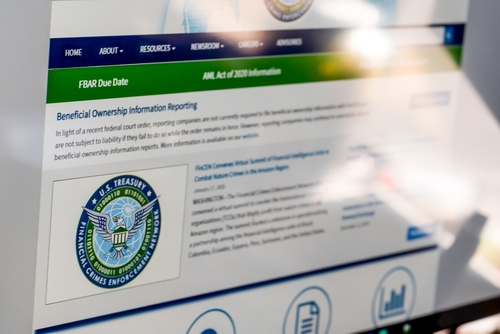
There is no legal precedent from which one can learn directly about the current crisis despite earlier crises having been discussed in the judicial system. How then can the provisions of the law be interpreted and understood in the context of earlier cases?
Two parties have signed an agreement aimed at executing a project. Under the framework of the agreement, the executing party must finance its portion via bank credit. However, as a result of the outbreak, market conditions are significantly different than those at the time the agreement was entered into. Banks are unwilling to provide financing under similar terms to those at the time the agreement was entered into. The executing party claims that it is no longer able to fulfill its obligations as a result of the outbreak because it had relied on the bank’s credit terms.
Now imagine that the State of Israel is a party to the agreement and an international consortium is meant to fund a national infrastructure project. According to the consortium, the refusal by the bank to grant credit under the earlier terms constitutes a “force majeure” and negates the contract. Is the consortium’s claim correct? Will the consortium be released from its obligations without being deemed to have breached the agreement?
More than a decade ago, arbitration was considered between the State of Israel, which was represented by the writers of this article, and the consortium that was announced as the winning contractor in the BOT tender for the construction of the “Red Line” route of the Light Rail project in the Tel Aviv metropolitan area. The consortium was unable to secure the necessary financing to execute its obligations under the BOT tender. The claims and issues that arose within the arbitration were all involved in the implications, consequences and the backdrop of the global “sub-prime” crisis of 2008. The Red Line arbitration case, and its analysis, is much more interesting and relevant in these days, since one can assume that we can find some similarities between the financial and economic implication of the 2008 “sub-prime” crisis and the current economic circumstances that are likely to be expected as a result of the COVID-19 pandemic.
Will the COVID-19 outbreak be considered an authentic “force majeure”, event or a “frustration “cause, that will justify the release from an agreement concluded pre-crisis? The economic approach to law is based on the concept that a contract is always signed under conditions of uncertainty. The parties must internalize the uncertainty, bear the inevitable deviation from expectations, and establish contractual mechanisms that address exceptional events, such as “force majeure”, which is designed to allow the parties to release themselves from their obligations in any of the scenarios that may result.
Under the current Israeli law, there are three relevant legal arrangements to address contractual relationships in the existence of circumstances of unexpected and frustrating events, From the most specific to the general: (1) the most specific is the specific contractual terms in the agreement between the parties that contains “force majeure” articles; (2) distinctive “force majeure” provisions in specific laws which regulate the rules from a contractual obligation in specific contractual relationships, or under the existence of special frustrated external event; and (3) the general “frustration” article and doctrine codified in the Israeli Contract Law. The specific options are always preferable to the general one and will prevail.
Thus, the contractual language has significant meaning, even in the COVID-19 crisis. “Force majeure” articles within a contract can include the conditions for the clause’s application, its significance for the continuation of the agreement, and how to define and limit the remedies and tools available to the parties. It appears that after the World Health Organization declared COVID-19 a pandemic, even a general force majeure clause is likely to be considered justifiable for release from the obligations of an agreement.
An example of a “special” frustration clause or force majeure” provisions in Israeli law, can be found in the Tenancy Law. Section 15 to the Tenancy Law states that if the external frustrating even prevents the tenant to use the property, he may be excused from paying the rent if “at the time of signing the contract, the tenant was unaware of the (frustrating) circumstances and could not have predicted them”. The Supreme Court (a decision by Justice Yitzhak Amit) distinguishes between two situations: (1) the physical prevention of accessing the property; and (2) the tenant’s livelihood is impaired. Only the first situation will allow for an exemption from payment. However, the court considered the prevention period. Thus, one can distinguish and claim that the long-term of unemployment caused to many by the COVID-19‘s governmental restrictions, can serve as grounds for release from a tenancy agreement due to the extended and unimpaired damages caused to the tenant.
Another good example for “special” frustration causes in the Israeli Law, are located in the insolvency proceedings that give companies who are in the midst of suspending proceedings (such as stay of proceedings or freezing orders) the possibility of being released from a “burdensome contract”. COVID-19 may justify being released from such burdensome assets or contracts for companies that are facing difficulties.
Where there is no “contractual arrangement” or “special provisions” as such above, the courts will be required to adjudicate the issue and discuss, not only the question of the existence of a preventive event but, a list of economic questions on the merits of the matter. Before discussing this, it is appropriate to cite the general legal provision, codified in Section 18 of the Contracts Law [Remedies for Breach of Contract], 5731-1970, as follows:
- Was the breach of a contract the result of circumstances which the breaching party was not aware of nor should have been aware of at the time the contract was concluded, or which he did not foresee nor should have foreseen and which he could not have avoided, and if the performance of a contract under these circumstances is impossible or fundamentally different from what was agreed between the parties, the breach will not give cause for enforcement of the contract or compensation.
Under this section, four identifiable economic tests were formulated: (1) the breaching party could not anticipate the occurrence of the event nor change its effects; (2) the occurrence of the event is beyond his/her/its control; (3) the existence of the contract is impossible or imposes exceptional and/or extreme costs on at least one party different than as agreed to between the parties; and (4) in retrospect, the effects of the event were not significantly reduced.
It is somewhat clear that the first two conditions are applicable and exist in this COVID-19 era. The 3rd and 4th conditions are regularly more difficult to apply. However, although the COVID-19 financial implications are not fully formed, and the full picture of its financial implications is unclear, we can make some very reasonable predictions based on the current situation and in light of the comparison with past events. We can fairly conclude that the 3rd and 4th conditions can also be met, and the COVID-19 implications of contractual agreements may affect the application of “frustrating event”. And we can point to several reasons and justifications for that:
First, this is a unique world-wide event. The COVID-19 is a transnational, cross border and cross-continents pandemic, with changing and unpredictable spreading ratio and contagion.
Secondly, it is characterized in rapid changes with extreme and dramatic affects. For example, in February 2020, the unemployment rate in Israel was at 4%. By the end of March, it has risen to close to 25% and the GDP is expected to fall by at least 10%. The situation in Israel is not unique. Such phenomena have not been observed in either Israel or the West in the last 80 years. Even during the Great Depression of the 1930s, the unemployment rate in the US only reached 25% by 1932, three years after the crisis had begun. This is an economic event on a global scale, affecting both supply and demand, which have both been reduced following a blockage a governmental restrictions and orders which limited (and further terminated, even if temporarily), business operations.
Thirdly, the response of governments world-wide The global imposition of a closure, the legislation of emergency regulations, and allocating most of the government’s and state’s budget for treating the pandemic and its consequences (such as grants to businesses and population in need), is unique, and its implications are meaningful (although, in Israel, the financial measures that were undertaken by the state, are relatively modest).
Fourthly, the global crisis is still in its midst and it is impossible to predict when and how it will end, and to what extent it will impair the global economy in the long term.
Though there is no relevant legal precedent in Israel directly relating to COVID-19, various crisis situations have been discussed in the past. After the Yom Kippur War, the Late Honorable Justice Landau ruled that war in Israel is a foreseeable event. And as such, one cannot argue to be released from contractual obligations solely due to the event of war. However, this approach has softened over the years, and in some situations, the occurrence of war may nevertheless impact the ability of parties to fulfill their obligations.
Such an approach is reflected in the Second Lebanon War and the Second Intifada, where some parties were only released from their commitments when the events had an immediate and significant impact on their ability to fulfill them. This is a case-by-case analysis.
However, it is clear that the current COVID-19 crisis is unlike previous events, and cannot be compared to any previous war, due to the four reasons mentioned above.
The courts that will rule on disputes that arise later in the COVID-19 crisis should consider, among other things, the following, all or in part:
- The Essence of the Remedy: Israeli law only recognizes remedies for protection against enforcement or compensation claims and only allows the parties a remedy for release from the agreement, altering it according to circumstances and canceling future charges. But what about the actions that the parties had taken prior to termination for the execution of the contract, including money already paid as an advance? Israeli law allows the court to, in some cases, mandate mutual restitution and compensation for reasonable expenses incurred. Also, does the event result in the termination of the commitments or a suspension?
- Partial Blockage of Supply: An important question will arise concerning businesses whose operations are only partially blocked due to the governmental restrictions. For example, a business that operated during the period but staff quota was limited to 15%. Is there a justification for the partial exemption and how will this proportion be calculated?
- Demand Effects: What about whole sectors that the demand at this time is completely diminished, such as aviation, tourism and conferences?
- Time Range: What is the relevant timespan in which it is permitted to claim “force majeure”? Assuming that many sectors of the economy will be closed for a period of six months but the economy may be in a recession for a longer period that will not allow businesses to recover for an even longer period. If so, what is the period for which a “force majeure” claim may be made, and is it only the period during which the closure was imposed or afterwards too?
- “Consequential” Damages: In a situation where there are contractual relationships that involve third parties and other contractual relationships that may depend on each other. The collapse of one contract can affect third parties as well. For example, a business that depends on the supply of a product or raw material from one business to another. The raw material supplier is unable to deliver the product and its contract with the manufacturer is not executable. As a result, the manufacturer will be unable to fulfill its obligations to third parties, which, as a result, will not be able to fulfill their obligations to other parties.
Where does economic and legal defense begin for all these parties and where does it end? As the state works to assist a particular sector, to what extent can it help or eliminate the need for claims of “force majeure”?
These questions have no definitive answers, currently. Thorough economic and legal analysis of the facts will be required, by each case, according to its circumstances. But the question is whether to leave these issues to be resolved by the courts, especially where it is reasonable to expect that the court will soon be flooded with cases on these specific issues and events.
In our view, the COVID-19 crisis requires a systemic solution instead of individual rulings. The systemic solution should be legislation that will determine the exact parameters for exemption from contractual obligations as a result of the COVID-19 crisis. However, such a solution cannot be obtained in isolation from the state’s budget and fiscal conditions. If government policy is based on the principle that partial or full compensation can be given to those who are harmed or damaged by force majeure, the need for definitive solutions will be decreased. In any case, a clear and informed government policy may mitigate the future need for complicated and onerous legal hearings that will hurt the economy’s recovery.
Returning to the beginning of this article. In the example of the Light Rail arbitration, the contractor’s claim that the 2008 financial crisis was a “force majeure” was rejected by the panel, and the contractor was required to compensate the state according to the terms of the BOT tender and agreement.









